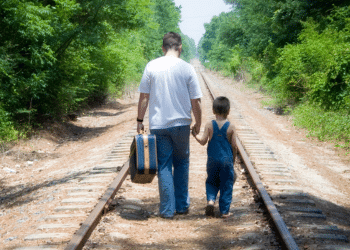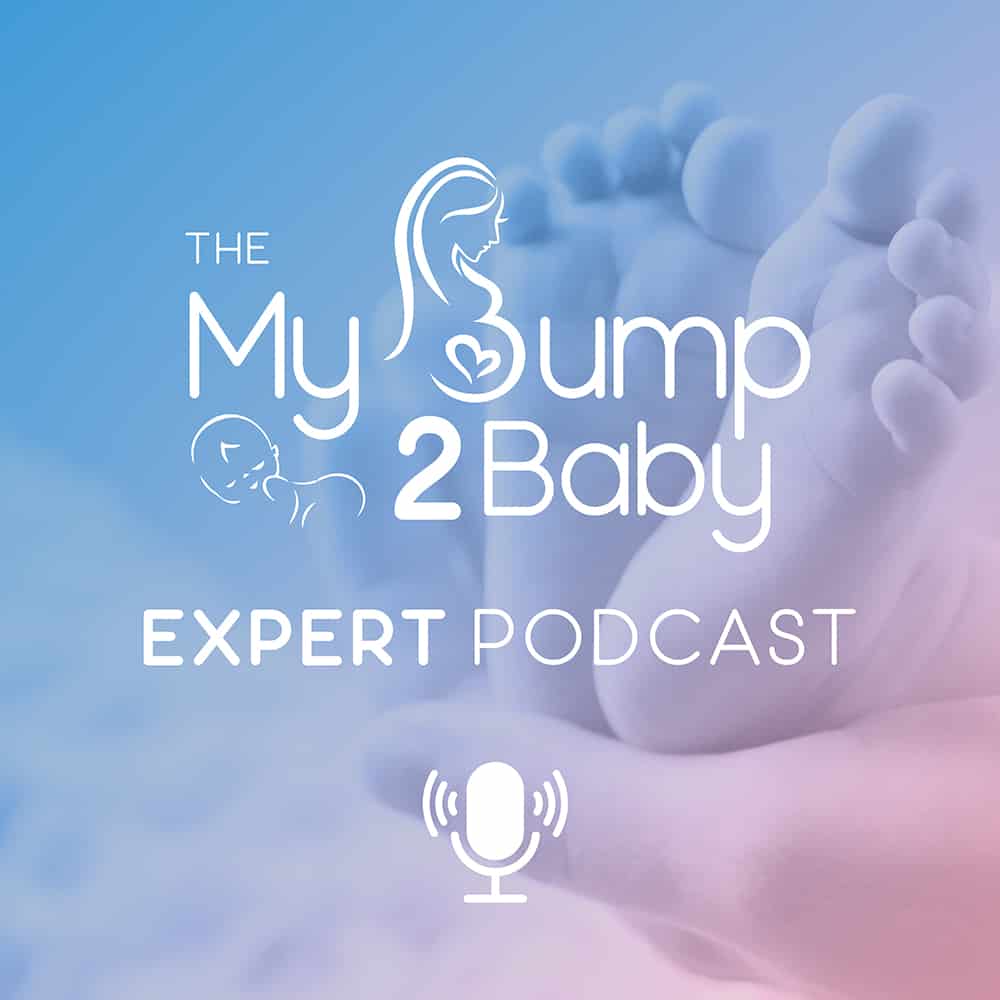- Sleep in the Fourth Trimester
Today we speak with expert sleep coach Jemma Mumford from Blissed out Babies, Jemma talks about sleep in the fourth trimester. Jemma talks about the first few months after you baby has been born. Jemma talks about how newborns sleep, why newborns only nap and how exhausting it can be being a new parent. Jemma gives tips on helping a newborn baby understand the different between daytime and nighttime. Following your baby’s cues, what to look out for when a baby is tired, when to put your baby down, tips on getting a baby bedtime routine started early and also reminding us that there is no pressure to get your baby in a routine at this stage. Jemma shares information about sleeping with newborns, when to think about putting your baby in their own room. Jemma shares tips on safe sleeping for newborns. Jemma shares tips on sleeping as a new mum in the fourth trimester.
Here are Blissed out Babies Social Links:
https://www.facebook.com/pg/blissedoutbabies
Below is a link to the organisation mentioned in the episode:
https://www.lullabytrust.org.uk
Carla: [00:00:09] Hello and welcome to My Bump 2 Baby Expert podcast, where we bring experts from all over the UK to answer your questions on everything, pregnancy to pre-school.
Carla: [00:00:28] Today, we are joined by expert sleep coach Jemma Munford, who will be talking to us all about sleep in the fourth trimester.
Carla: [00:00:50] Hello and welcome to My Bump 2 Baby Expert podcast. Today, we are joined by the lovely Jemma Munford. From Blissed Out Babies. She is an expert sleep coach and she will be talking about sleep in the fourth trimester. Hi, Gemma.
Jemma: [00:01:08] Hi, Carla. How are you?
Carla: [00:01:09] I’m good, thank you are you?
Jemma: [00:01:10] Great thank you. I’m really excited to chat about sleep today.
Carla: [00:01:14] I am. And I’m sure it will help a lot of parents, so I’ll get started. So what is your advice to get in a good sleep routine?
Jemma: [00:01:26] Okay, so yeah. The the golden nugget of a sleep routine. So firstly the early days and the fourth trimester, the fourth trimester let’s start with that actually. Fourth trimester is the first three months of your baby’s life. So you have your first, second and third trimester while you’re pregnant. And then we call it fourth trimester, which is the first three months of you baby being on the planet with us. It’s a really, really important time the early days is purely about recovery for you. You’ve been through you know, I really exhausting, tiring process, you need to allow your body to recover. It’s about bonding. It’s about establishing, feeding and really getting to know this little person that you’ve been waiting to meet for so long. The first few weeks newborns sleep is very different to adult sleep. They don’t actually produce their own melatonin until about about one or two months old. So in the very early days, they need to fall asleep either with feeding or just because they tire themselves they have a really small awake window when they’re newborn. So the first month or two is really very, very, very frequent nap. And actually its napping all day and all night. There’s no real defines, daytime versus nighttime. And that’s mainly because their circadian Rhythm, which is our internal body clock, isn’t established until probably about three months old, which is why we call this period the fourth trimester.
Jemma: [00:02:57] They need a lot of help and support from us during these first few weeks with sleep. You’ll probably find it really difficult. It is so exhausting and it’s just so tiring because they just don’t sleep well. They sleep in very, very short periods, maybe one or two hours at a time, and that goes on for 24 hours. So it is really exhausting. And what I would say about getting into a good routine is there’s not many things that you can do at this stage to really push them into a timed schedule. Where you recognise a real pattern. The best thing I can give you advice on are things like just helping to manage and regulate that circadian rhythm and help them understand that day is different nighttime. So firstly you can do that for them by using light. Light is really important for circadian rhythm. When it’s day time, as soon as you get up in the morning or whatever time you want morning to be or whatever time your baby seems to be waking up, you want to get your curtains open, get lots of lovely lights into the house and be quite animated in yourself so make it really obviously morning. So morning. You know, daytime voice the kind of happy and jolly and as best you can be when you are really tired and just make sure it’s very obviously daytime.
Jemma: [00:04:19] And then if you do the reverse at nighttime, mix it up make it as dim as you can in the house. So turn the lights down, draw the curtains and use quieter voices, be a lot less animated. So just be a bit more calm and quiet and use a nighttime voice. And then that will really help to get you baby to understand that daytime is different to nighttime. You can also help regulate the circadian rhythm by trying to get up the same time every day. Have a quite a regular wake time and a regular bedtime really helps with that. I would say you don’t have to get up at five past seven every morning, but, get up, within the same roundabout probably half an hour. So to choose what time suits you and try and stick with that and similar for bedtime try and aim for a reasonably regular bedtime. It’s very difficult in the very early day. There’s no real routine, but kind of just follow your baby’s cues. It’s really hard not to try and look for patterns very early on, but realistically, probably not going to see pattern emerge till about twelve weeks old. So try and relax about it, I would say, and use light and dark that really help and try to recognise your babies cues their tired cues, those little signs that they’re telling you that they’re tired. So with little ones sometimes it can be a bit hard to spot. You want to be looking at things like they might start going a little bit pale or their arms and legs might stop moving and they might calm down a little bit. Or they might, if you’ve been looking at them and talking to them, or playing with them with toys. They might start avoiding eye contact or looking away. And those are really early tired signs. So it’s best to try and get them to go to sleep at those earlier signs rather than the late signs of yawning and rubbing their eyes and crying and fussing because sometimes they have gone past it a little bit there. So I would always try and put your baby down at the earliest signs of tiredness, which will help them nap batter. It’s never too early to start with a bedtime routine. And especially with older children. The bedtime routine is massively important in helping them wind down from their busy day. It also provides them with kind of, very obvious cues that sleep is about to happen. Even as adults we have very specific cues for our bedtime routine. So with children, it’s even more important. With babies, you can do like a really quick bedtime routine of maybe five or 10 minutes in the fourth trimester.
Jemma: [00:06:58] So what you might want to do is you might want to do some nice massage. And then maybe get them dressed into the PJs, or put them in their sleep suit or the grow bag, or whatever they are going to sleep in and maybe have a little short book whether it’s a little picture book that you show them or just read a few pages or a couple paragraphs from a story that you enjoy. They’ll just like hearing your voice and then feed and then put them down. And you can use that routine for nap and bedtime to give them a really strong cue that will then lead to sleep. And those are really nice ways to start thinking about getting into a routine. But above all, try and relax about it in the first few weeks and just go with the flow. I know first time, sometimes trying to make your baby fit into a mould of a routine that your friends baby does, that you found on your Google search at three o’clock in the morning. Sometimes trying to make your baby fit into that schedule doesn’t work because they’re all different. And actually, sometimes it can put more pressure on you that you don’t really need. So try and go with the flow, use light, use regular wake up times and a little bedtime routine and that will really, really, set some good foundations for sleep going forward.
Carla: [00:08:15] Excellent. Oh, that’s a very informative answer. And you answered a lot of questions that I actually didn’t know my son’s four and yeah. Wow, that’s fab. Thank you. So another question a lot of parents have is. How long should the baby sleep in their room for? Because it’s quite difficult one really, some parents can’t relax fully when they’re in the room because they’re always checking if they’re breathing and stuff. But then also it is for safety as well. It’s quite important that they all check those things. So. So what how long do you think they should sleep in their room for?
Jemma: [00:08:52] So, yeah, this is a really important part actually to talk about. And it’s really important that we follow safe sleep guidelines because they reduce the risk of sudden infant death syndrome, which is SIDS also known as cot death. And the Lullaby trust website you’ll find on a Google search has lots of brilliant information about safe sleeping and actually since the early 1990s. When we’ve put together these guidelines, the rate is still the cot death in the UK is actually dropped by 80 percent.
Carla: [00:09:25] Oh wow.
Jemma: [00:09:25] So it’s really important that we follow these guidelines. And lots of it, a lot of its common-sense. But lots of lots of these things have changed over the years so do follow the current guidelines. Not what some other people might be telling you whether thats your mother in law or or whoever please follow these basic guidelines its really important to keep your baby safe. The advice is actually to keep the baby in the same room as you for all sleep for the first six months of their life. So that includes naps and bedtime sleep. And you think, oh, gosh, I can’t do that. You know my babies going to wake if I just kind of put them in the Moses basket in the kitchen with me all day. But actually, they do sleep quite well nearby you they do need be near you and they are comfortable with that and they need that. I would always say try and get either a nice Moses basket to keep in the same room as or if you have got you pram set up with the nice bassinet bit, the flat base, you can use that in the house as well. But yes your supposed keep them with you for the first six months. It doesn’t mean that in the daytime that you can’t nip to the toilet. Or you can go and make yourself a cup of tea. You have to be next to them the whole time. But babies are safer if we’re close by. So get a Moses basket or have the pram and the bassinet set up in the house, and if you’re struggling to put them down to sleep in the cot or the Moses basket in the daytime, I’ve got a couple of tips for you. So it’s really common in the fourth trimester that you baby just wants to be stuck to you. Absolutely common. And it’s all about helping that bond.
[00:11:10] They feel safe with you there so if you are struggling, you baby down for a sleep in the day and you need a break. I completely understand that. You know, you feel touched out sometimes and just want to put baby down for a little while, thats fine. So you Can either get a sling, slings are really, really handy for giving you both hands. So you just put them in the sling and they can sleep next to you. And they’re quite settled in a sling usually. So try your local sling library and they can help you out with trying ones that suit your body and theres fabric ones you can try and you can hire them rather than you using money buying one. So sling is a top tip for keeping your baby close to you for naps during the day. But also sometimes the transfer of your baby from being in your arms or the Moses basket can be a bit tricky. Babies have got that startle reflex that Moro reflect were their kind of arms will flap being lowered down backwards. Sometimes it’s a nice tip just kind of trying to lower them down into the Moses basket on the side and then roll them onto their back. And that kind of avoids, that startle reflex flat, that is a good tip. But yeah, absolutely, they should be with us for six months and thats in your bedroom as well at night. And i completely understand how it can be difficult to sleep when your baby’s in your bedroom. They’re are not that quite sleepers are they I don’t whoever came up with the phrase sleep like a baby. Because that makes me think of, you know, someone who sleeps for a long time without making a peep of noise, babies don’t sleep like that do they lets face it.
Carla: [00:12:47] Neither do husbands either, you know they seemed to sleep through everything. Well, mine did anyway.
Jemma: [00:12:55] Men seem to be able to have kind of a bit of an off switch with the with the volume of the baby’s noises. I think that is just evolution. We’re programmed to hear every little peep from our babies. And that’s just that’s just human nature, isn’t it? That we’ve got that in us that wants to protect them. But it does make it really difficult for us to sleep. So prepare yourself for them being for six months in your bedroom. But you can disguise some of those noises with white noise and find that help, and that actually helps the baby settle. So having a white noise machine playing the whole night long. It also helps babies feel like they are back in the womb again. And disguises kind of the snoring noise and husband, and it can actually help us kind of distract us a little bit from those sounds. So white noise is a great tip for keeping baby in your room with you for a little while. And then the other things to just bare in mind our kind of general sleep, safe sleep guidelines. Make sure you put your baby on the back to sleep. We probably a lot of the people that are listening to this podcast now were probably put down on the front to sleep and that was before the advice changed in the in the early 1990s. But actually it is shown to be a significant risk. So always put your baby down on their back to sleep. Put the feet down to the foot of the bed to make sure they are that the bottom of the cot, so that they cant slip down further underneath any covers, that you might have there. Tuck blankets in underneath their armpit. That will help prevent that too. And this time of year, I mean, I’m looking outside my window now. It’s absolutely beautiful day. It’s going to be a real scorcher. Twenty six degrees. I think again today, so, it is quite important to try and keep your baby cool at night. So dress them appropriately. You want to bedroom to be between 16 and 20 degrees ideally and then use a sleeping bag or bedding to keep them at the right temperature. However, at this time of year it’s really important that you keep them cool as well. So dress them appropriately. You might want to just check instead of following the guides online of what you should wear with with a sleeping bag. Yes they are useful, please just go off your baby’s temperature as well. So either feel the chest to see if they are too hot or the back of the neck is a really good spot as well. If you test the hands and feet, they’re always colder. They don’t always give you accurate temperature for the baby. So just hand on the chest or the at back of the neck is really useful to help tell if they are cool or warm enough. No smoking around baby off of that, that increases the risk as well. Breastfeed if possible. The breastfeeding offers about a 50 percent reduction in the risk of SIDS in exclusively breast fed babies. So, if your a struggling mama with breast feeding right now, it is really tough. Try and get some support but try and stick with it. It does get easier and it does help with their safe sleep to. But going back to the lullaby trust Web site, thats a fantastic resource for lots of safe sleep information, including, things like [inaudible] too so I would highly recommend parents take a look at that website.
Carla: [00:16:07] Excellent. Brilliant. Thank you very much. Another question that a lot of parents struggle with. I know. I did. Was what are your tips for sleeping as a new mum? Because often you can feel a bit like a zombie walking round from day to night. I don’t think you even know what’s at what time it is some time. So do you have any tips to kind of catch up on sleep?
Jemma: [00:16:31] Absolutely, yes. So it is really, really difficult. It’s absolutely the reason the one single reason that I go into this job, I nearly lost my mind with my first. He was a terrible sleeper. And the impact it had on my mental health and my relationship with my husband, my relationship with my baby. You know, I’m so passionate about helping mums to get back to sleep. There’s nothing we can do to force another person to sleep. We can’t even force ourselves to go to sleep. How would we ever expect ourselves to be able to make our baby go to sleep. So sometimes and really in the fourth trimester it’s about accepting kind of how it is. And just doing what you can to get as much sleep as you can when you can. So some of its accepting what’s going on but just kind of roll with it. My best tips our, and I laugh saying it sometimes. But sleep when the baby sleep is one of the first things you told isn’t. And how ridiculous. Sometimes I think. Gosh, there’s no way on earth. And I don’t think I’ve ever slept when my babies have slept. Because you know, you’ve got piles of washing to do. You’ve got, if you are formula feeding. You bottles to wash and sterilise, you know. God forbid you want have a shower or eat something yourself whilst your babies having a nap. Oh, you know what? Sometimes you just need to watch some TV or stare into space and do nothing for that time. So I fully appreciate that sleep when the baby sleeps. Doesn’t work for everybody. But the science tells us that actually if you can just lie down and close our eyes for 20 minutes or so, sometimes our brain actually go into very light sleep. So whilst you might think you’ve had a sleep just closing your eyes, lying down 20 minutes, half an hour, makes all the difference, and actually you can feel quite refreshed after that. Second tip I would say consider co-sleeping if you finding the nighttimes really difficult. So there are plenty of ways of being able to sleep very safely with your baby, with you. Again the lullaby trust organisation website will give you some tips on how to position, but definitely look into co-sleeping if you feel that you would like to do that. There’s nothing wrong with that at all if you do it safely. When we talked earlier about circadian rhythm being driven by light its really helpful for us as well if we can get ourselves out in day light. So lovely sunny day like today or even if it’s raining and dreary. If you can get yourself outside and go for a walk, put baby in a sling or put baby in the pram and get yourself outside for a 20 minute, half an hour walk, guarantee that will make you feel better. Don’t give up on breastfeeding. So breastfeeding mums actually report better sleep than formula or combination feeding mums. Now I’m not at all in any way, desperate for everybody too breastfeed. I know I couldn’t with my first and actually chose to formula feed with my second. But if you are able to breastfeed exclusively. Actually, the studies say that you do get better sleep. You might feel like you wake up more however you will get back to sleep quicker after a feed you don’t have to get up and make a bottle of formula, leave it to cool down or anything like that. Actually, a quicker process is to breastfeed, but also you produce hormones that make you fall asleep better and your breast milk has melatonin, or Tryptophan in it which actually produces the melatonin, the sleep hormone and it helps your baby sleep. So there is definitely some pros to breastfeeding for sleep. And be kind to yourself, you know, accept help if it’s offered. I was a bit of a nightmare with my first I want to be super mum. I wanted to control everything. And I felt like I have to do everything to look like I was you know coping well when I actually deep down inside probably wasn’t. So I would say be kind to yourself and take help if it’s offered, you don’t have to do all this by yourself. So if your partner can just take them out for a walk, so you just get an hour’s sleep or whatever. Just take that help. Don’t be too proud for that.
Jemma: [00:20:47] And. If you’ve got your partner there who is able to help take it in shift. So that maybe they could, if they’re working, we sometimes worry that we have to take on the whole of the overnight so that they can get enough sleep to be able to go and work. But actually, you need that to so maybe think about taking the first part of the night as a shift that your partner can look after the baby and you can maybe go and get a chunk of about four hours at the start of the nighttime. So go to sleep when your baby goes to sleep. And then you got that time to kind of recoup a little bit. Again, studies show that we need about four or five hours in a chunk to help make us feel a lot better. So if you can work your shifts with your partner to do that, then that’s great. And then the other thing is just getting a Netflix, prime ,podcast subscription and just embrace it. You know, you’re going to be sat on the sofa for a long time under a baby thats either feeding or snoozing. And I would just say try and embrace it. It’s really hard at first because you got you know a lot of other things that you want to be doing. But I can guarantee that it won’t be too long before they’re running around, climbing all over you and will not sit still for a cuddle. So really try to embrace it and just catch up on some TV and have a rest as much as you can and just get through it. This first weeks are really tough so it is a lot about survival. But look after yourself.
Carla: [00:22:15] I love that, love that answer. And I totally agree with Netflix as well. And, you know. Yeah listening to podcasts, get yourself some headphones and just if you can’t sleep at night, or your feeding baby you know just just listen to something that’s gonna make you feel good and positive. So, yeah. And that was t a great answer, another one gosh. And a final question then. So why. Why do baby sleep so much? That was just a question that a lot of mums have, because I think when you have a baby like, oh, I want it to do things, and it’s not doing anything. So so why do babies sleep so much?
Jemma: [00:22:57] Well, you know going back to what you are saying there, you’re desperate for them to do something. Actually there is so much going on behind the scenes of our babies, especially in the fourth trimester. And you don’t you don’t need me to tell you that fourth trimester sleep is completely different to adult sleep. That’s why we find it so hard. You know are sleep needs are completely mismatched. We need a nice long chunk to feel restored, replenished after our day but our babies don’t give us that they kind of just do it in short, very short burst to sleep with every short bursts of awake time in between. Now there’s definitely some science behind that. You might find it interesting to know that babies are only born with about 25 to 30 percent of a fully developed adult brain. We are one of the only mammals that complete most of our development outside the womb. If you think about it, other mammals like horses or elephants even they have children and they’re able to feed, they are able to walk, they are able to have a decent chance of survival within a few hours of birth. Whereas our babies aren’t are they? They need and complete a lot of their development outside of the womb. An interesting thought is if we were to birth a child, with all those skills being able to walk, being able to survive, being able to feed themselves. We’d actually have to give birth babies who were about eight months old. Now, I’m not really up for that.
Carla: [00:24:36] No
Jemma: [00:24:36] It’s actually not physically possible for us to be able to give birth to the babies at the development stage whether they need to be able to survive. So all that brain development and all that growth happens on the outside. That’s why they sleep a lot. Their brains are actually, they need deep sleep and light sleep in order to process memory. So what happens in the first few years of life the brain is focusing strengthening and pruning all the little neural pathways in the brain which help process memory. And that’s how we learn all the new skills that we’re learning. So learning how feed, learning how to walk, crawl all those skills. It’s all about making those connections in the brain. So babies need need to sleep to allow that to happen. The growth hormones also released at night so actually I have said it a lot with my two. Sometimes get them up in a morning after their nights sleep and actually, they look bigger. Or, the face looks slightly different, have you noticed that Carla?
Carla: [00:25:37] Yeah. Yeah, I have.
Jemma: [00:25:39] I know you didn’t look like that when you put them down for that sleep.
Carla: [00:25:42] Yeah.
Jemma: [00:25:43] Actually the growth hormones produced at night so it’s quite possible. So yeah.
Carla: [00:25:49] It’s really interesting.
Jemma: [00:25:51] It is I love talking about sleep. It’s fascinating what going on.
Carla: [00:25:53] I know i love sleeping to be honest.
Jemma: [00:25:58] Yeah, absolutely. I mean, the amount of sleep that babies need is quite high in the early days, in the fourth trimester you are probably looking between 15 to 18 hours a day. And after that it does start to kind of drop. Over the next three years also, the amount of daytime sleep your child will have will start reducing and the amount of nighttime sleep tends to consolidate then. So they will start dropping naps completely at around three, but over the next three years or so you’ll start to kind of need to manage their daytime nap versus their nighttime sleep and that’s one of my tips to can kind of manage sleep as it goes. So over the time you’ll reduce daytime sleep and nighttime sleep will kind of increase and will kind of settle a bit more over the next couple of years. But it’s all about brain development in this time. And all those little changes going on in the head, which you can’t see but, eventually you will so within about six weeks you’ll start getting smiles and then little giggle come and then they’re learning how to roll. And before you know it, you got a little baby thats sitting up and shouting at you and feeding themselves. And it’s amazing. But all that comes down to what’s going on in those little brains when they’re asleep.
Carla: [00:27:15] Yeah. Oh that’s fantastic. Jemma. You have been amazing. Thank you. I’ve learned so much today and I hope all you guys have as well, Jemma. Where can we find you?. Where can are parents find you if they want more information around you Sleep coaching?
Jemma: [00:27:32] Absolutely. So my business is called Blissed Out Babies. I’m Blissed out Babies on Facebook. It’s www.blissedoutbabies.co.uk if you head over to the Web site. There is loads of information on there. I also do sleep workshops and so if people did want to learn more about how sleep works and learn some really good tips, good detailed tips for the first two years then have a look at the website and come and join me on one of my workshop. But I’m happy to talk sleep as you probably heard. I love sleep. Total sleep geek but happy to talk anytime. If parents have got any queries just drop me line and I’ll help as best as I can.
Carla: [00:28:12] Oh, that’s amazing. And we’ll pull all Jemma’s links in the show notes. So thanks very much, Jemma. It was lovely having you.
Jemma: [00:28:19] Thank you so much.
Carla: [00:28:20] Thank you.
Carla: [00:28:28] Thank you for listening to My Bump 2 Baby’s Expert podcast. If you would like to find help and support from experts in your local area, head over to www.mybump2baby.com. And you will also be able to find local pregnancy to pre-school groups, classes, businesses and services in your local area.
Carla: [00:28:57] This podcast is sponsored by my bump 2 baby family protection and Legal Directory. Being a parent is such a minefield. It’s so difficult deciding who to select when it comes to financial advice or family law solicitors. My bump 2 baby works with one trusted financial adviser and one trusted family law solicitor in each town throughout the whole of the UK. To find your nearest adviser or family law solicitor. Head over to www.mybump2baby.com/familyprotectionlegal.











